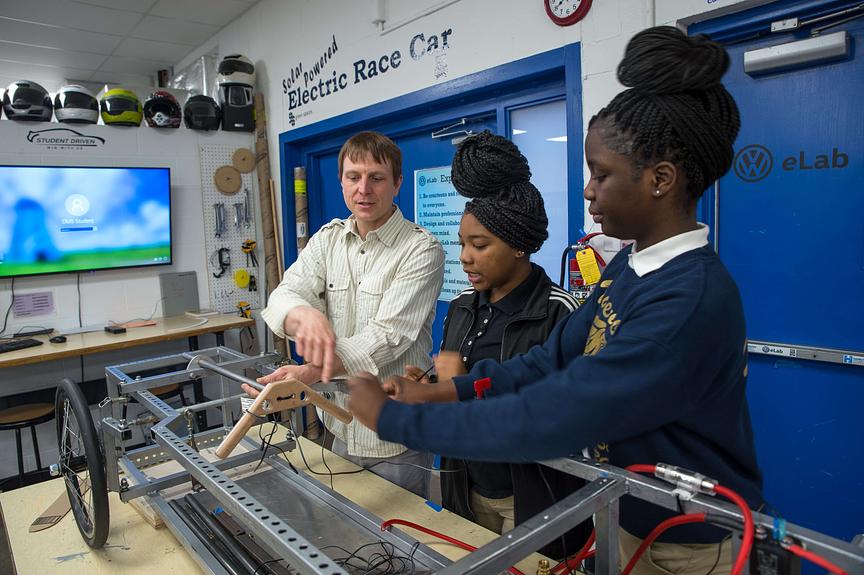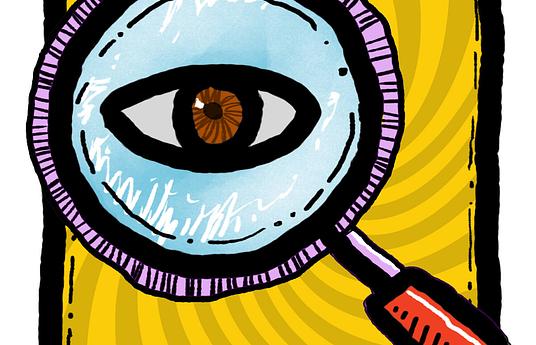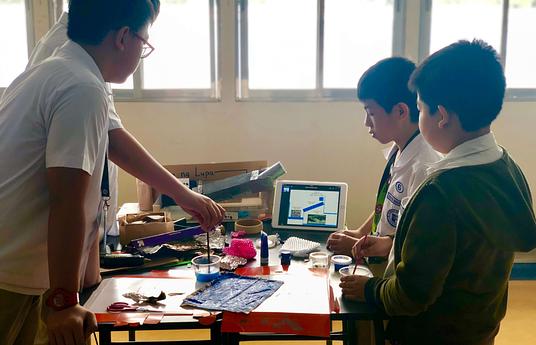Traditionally, K-12 education has focused solely on student mastery of content. However, to thrive in the modern workforce, students need to be agile problem solvers who are skilled at productive collaboration, critical thinking, innovation, and communication. School-based FabLabs have transformed how our students prepare for college and career through hands-on learning in advanced maker-spaces.
The digital fabrication ecosystem in Hamilton County, anchored by 30 school-based Fab Labs, serves as an incredible conduit for teachers to empower students to cultivate essential skills. These labs are advanced maker spaces that empower students to use computer controlled tools to create functional solutions to authentic problems in the students' unique context (like a microcomputer-controlled touchless sanitizer dispenser, or slippers with “headlights” that activate when you stand). However, they are much more than a room full of high-tech tools. The lab teachers facilitate a revolutionary schema for integrating authentic learning experiences by fully integrating a constructivist philosophy so that students master the technical fluency AND STEM Essential Skills necessary for success. Our embedded approach empowers students to develop a STEM identity in grades 4-8 that effectively reduces/eliminates the noted gender, racial, and SES barriers in STEM + CS fields.
STEM School Chattanooga opened the first Fab Lab in the state, and it immediately changed how students engaged in learning. Building on the success, Volkswagen Group of America took interest in expanding access to the labs, so they partnered with the state, the school system, and the Public Education Foundation (PEF) to develop a network of school-based labs. The partnership resulted in the largest network FabLabs in the world. As word spread through social media and press coverage, more than 1,800 educators from 37 states and 3 countries have visited the labs, with at least 21 school-based labs scaling the model across the United states in urban and rural communities in Milwaukee and central Indiana. Additionally, the founders have presented the model in Portugal, Argentina, & Malaysia.
The leaders of the digital fabrication ecosystem coauthored a free eBook, Let Me Try It, which is available at http://www.letmetryitbook.com. This is a great starting point on the philosophy and model used in these labs. For additional information, visit www.vwelabs.org or reach out directly to Michael Stone at mstone@pefchattanooga.org



